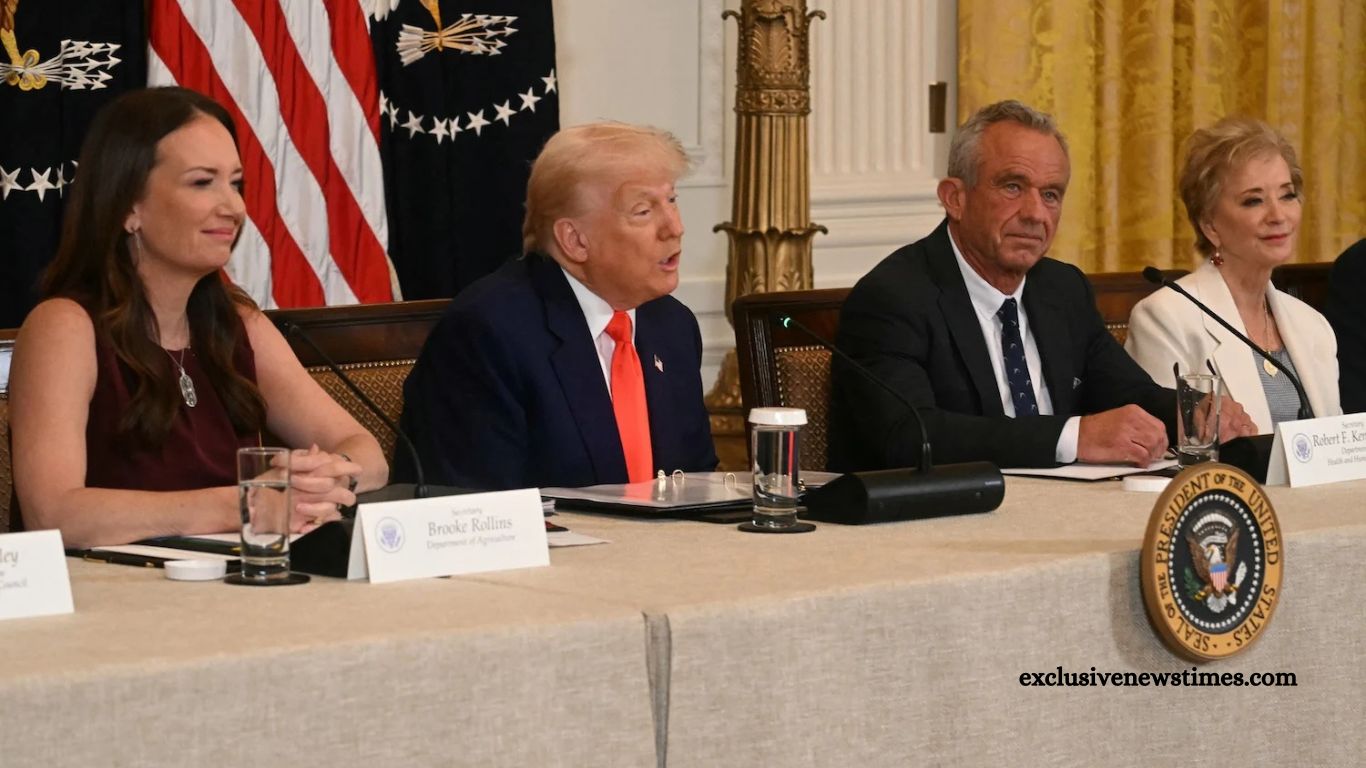President Donald Trump’s Make America Healthy Again (MAHA) commission, created by an executive order on February 13, released its inaugural report on Thursday, titled “Make Our Children Healthy Again: Assessment.” The report was discussed at a White House event featuring Trump and Robert F. Kennedy Jr., Secretary of Health and Human Services.
Read More: 15 Must-Have Leather Sandals to Shop Right Now
Key Findings: America’s Child Health Crisis
The 68-page report highlights the deteriorating health of American children, emphasizing the nation’s poor outcomes despite high healthcare spending. According to the report, the U.S. ranks last in life expectancy among wealthy countries and suffers from elevated rates of obesity, heart disease, and diabetes. It attributes these issues to four main factors: poor diet, lack of physical activity and chronic stress, “overmedicalization,” and exposure to environmental chemicals.
Controversial Claims and Vaccine Discussion
While the report raises some valid points about nutrition and environmental health, it also hints at more contentious theories, including vague suggestions about vaccines contributing to illness. President Trump echoed concerns about autism rates, which he described as “alarming,” citing a rise from 1 in 10,000 children to 1 in 31 today. Despite scientific consensus disproving any link between vaccines and autism, the report and Trump’s statements suggest skepticism toward vaccine safety.
The report also contrasts U.S. vaccine policies with those of European countries, attributing longer European life expectancy partly to their less stringent vaccine requirements—a claim that overlooks current European measles outbreaks and the benefits of universal healthcare systems.
Environmental and Technological Concerns
The commission’s report also expresses worries about pesticides such as glyphosate, microplastics, fluoride, and the potential effects of cellphone and Wi-Fi radiation on reproductive health—areas where scientific consensus remains unsettled or contradictory.
Commission Composition and Political Context
The MAHA commission includes controversial figures such as Kennedy, FDA Commissioner Marty Makary, Education Secretary Linda McMahon, and OMB Director Russ Vought. Other members include EPA head Lee Zeldin and former Trump advisor Stephen Miller. Mehmet Oz, leading Medicare and Medicaid efforts, also participated, highlighting initiatives to reduce drug prices.
Agriculture Secretary Brooke Rollins is part of the commission despite her previous decisions to cut nearly $1 billion in USDA funding that supported local food programs—an action seemingly at odds with the commission’s mission to improve child health.
Process and Report Revisions
The commission met privately only once before Thursday’s White House event. Last-minute changes reportedly softened critiques of corporate lobbying related to “forever chemicals” and added acknowledgments of vaccines’ role in protecting against infectious diseases, possibly diluting some anti-vaccine messaging.
Frequently Asked Questions
What is the MAHA commission?
The Make America Healthy Again (MAHA) commission was established by President Donald Trump via executive order in February 2025. Its goal is to investigate and improve the health of American children and address the nation’s chronic health issues.
What is the main focus of the first MAHA report?
The report, titled “Make Our Children Healthy Again: Assessment,” assesses the health crisis among American children. It identifies poor diet, lack of physical activity and chronic stress, overmedicalization, and environmental chemical exposure as key contributors to declining child health.
Does the report address vaccines?
Yes, the report includes concerns related to vaccines, implying a link to health problems without directly claiming that vaccines cause autism. This topic remains controversial and contradicts extensive scientific research showing no causal link between vaccines and autism.
Who are the key members of the MAHA commission?
Key figures include Robert F. Kennedy Jr. (Secretary of Health and Human Services), FDA Commissioner Marty Makary, Education Secretary Linda McMahon, OMB Director Russ Vought, EPA head Lee Zeldin, former advisor Stephen Miller, Mehmet Oz, and Agriculture Secretary Brooke Rollins.
How was the report developed?
The commission reportedly met once in a closed-door session before releasing the report. The White House made last-minute edits, including adjustments to vaccine messaging and removal of some criticism of corporate lobbying around environmental chemicals.
What criticisms exist regarding the MAHA report?
Critics highlight the report’s mix of legitimate health concerns with fringe theories and anti-scientific ideas, particularly around vaccines and environmental risks. There are also concerns about the commission’s composition and some contradictory policy stances, such as funding cuts affecting food security.
Conclusion
The United States faces undeniable health challenges, including lower life expectancy and high chronic disease rates despite exceptional healthcare spending. While the MAHA report touches on important issues like diet and environment, it also ventures into scientifically controversial territory and mixes policy recommendations with spiritual elements, reflecting the personal beliefs of its leadership.
The commission plans to release a follow-up report in August outlining policy strategies to improve national health. Secretary Kennedy has promised to identify the “cause” of autism by then—an assertion that contradicts the iterative and complex nature of scientific research.


